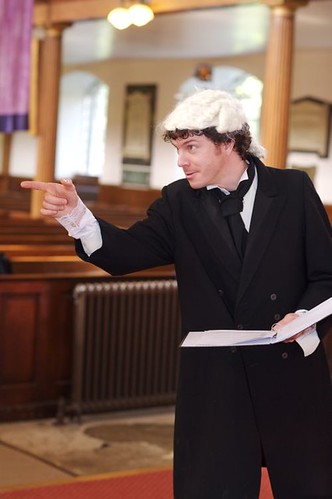 Slap on your least decrepit horsehair wig and peruse these legal posts.
Slap on your least decrepit horsehair wig and peruse these legal posts.
First, we have Kate Stith-Cabranes ’73, a former Dartmouth trustee and professor at Yale Law School, writing that the 1891 Agreement was no contract.
Indeed, not only does the Board have the authority to alter the selection of Trustees, it has the obligation to do so if it concludes, in the exercise of its fiduciary responsibilities, that the current process is not serving the interests of the College.
Bold words. John Bruce ’69 took issue with her citation in a letter to the Independent.
An attorney sent me a PDF of the Shortlidge v. Gutoski, 125 N.H. 510 (1984) case Ms. Stith-Cabranes references. This is short and easy to read, even for a lay person, and it’s very puzzling in that the case makes no reference to any supposed inability of unincorporated associations to contract. The case covers the well-known problem of members’ liability in an unincorporated association for the association’s debts (which of course implies the ability of said association to enter into contracts). This is a separate legal issue and makes no implication as to the ability of unincorporated associations to contract.
Meanwhile, trustee Todd Zywicki had this, and more, in response to Stith-Cabranes.
As Professor Stith-Cabranes seems aware, her “response” is actually a comment on an argument that I never made in my essay—-whether the 1891 Agreement was also a legally-binding “contract.” I did not characterize or refer to the 1891 Agreement as a “contract” but as an “agreement.” The difference between an “agreement” and a “contract” is important. According to the Restatement (2d) of Contracts Section 3, “an agreement is a manifestation of mutual assent on the part of two or more persons.” An “agreement” may or may not also be a legally-enforceable contract, and in fact, “agreement” is often used interchangeably with the idea of a “promise.” Professor Stith-Cabranes, therefore, misrepresents my position in a legally-relevant way.
My use of the term “agreement” thus was deliberate, even if Professor Stith-Cabranes confuses the two and has caused others to believe that I was making a legal argument as well. In fact, I didn’t make any legal arguments in my column—I simply followed Chairman Haldeman’s precedent and expressed my personal opinion on the meaning of the 1891 Agreement and moral and fiduciary duties that I believe it entails, wholly independent of the question as to the legal status of the agreement.
Finally, Scott Johnson of Powerline took stock of the exchange.
I think that Professor Zywicki has the better of the argument on the merits, but powerful prudential considerations also come into play. Regardless of the merits, the powers-that-be at Dartmouth are threatening to take an extraordinarily imprudent step in forsaking the 1891 agreement. For the Board to curtail the historic role of alumni in electing trustees under the present circumstances would amount to a confession that, because the administration has not prevailed in recent elections, it must resort to the exercise of raw power. Such an exercise of power is befitting of a tyrant rather than a serious educational institution. By itself it would, I believe, blacken Dartmouth’s name among reasonable alumni as well as disinterested observers.

Be the first to comment on "Lawyering"